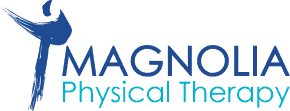As we all know, our country has been ravaged by an opioid crisis. In 2016, 116 people died from an opioid overdose every day and it is estimated that approximately 11.5 million Americans abuse prescription drugs.
This is a frightening and painful time, but there is a way out. Physical therapy is a natural, safe, and effective way to relieve pain. Physical therapy, unlike opioids, works to provide long-term relief rather than simply masking pain in the short term. Opioids create dependency because they do not address the reason for your pain. Don’t hesitate to contact Magnolia Physical Therapy if you’re searching for a risk-free and long-term solution to pain. Our therapists have the tools needed to treat your issue at its source.
Why you should avoid opioids
For many people, it may be difficult to understand why opioids are so dangerous. To understand the risks of these drugs, you first have to be familiar with the process of feeling pain. Your brain processes a large portion of the pain you experience.
When you stub your toe on a coffee table, for example, pain receptors are sent to your brain. You feel physical pain, and your brain responds by releasing chemicals to try to alleviate it. These chemicals function as natural opioids by slowing your breathing, blocking pain signals, and restoring your sense of well-being.
However, if you have chronic pain, are recovering from surgery, or have suffered a severe injury/trauma, your brain cannot produce enough opioids to meet the demand for pain relief. As a result, pain-killing medications are frequently prescribed. Prescription medication relieves pain by mimicking the chemicals your body naturally produces, but it does not help your body heal. Because your condition will remain the same if you do not receive alternative treatment, people frequently believe they need to take higher doses as their bodies become accustomed to the drug. This is the most common cause of overdoses.
Physical therapy: the safe way to relieve pain and improve function
Physical therapy will not only help you relieve pain, but it will also help you improve your overall function. Our physical therapists are dedicated to getting to the root of your issue so that it can be fixed. Unlike opioids, which only provide short-term relief, physical therapy aids in the healing of your body, so you can feel better in the long term.
Your physical therapist will treat your condition with a combination of therapeutic techniques, including ice and heat therapies, manual therapy, stretches, and ultrasound. In order to return to normal physical function, your treatment plan will also address your strength, flexibility, and overall mobility.
Over 116 million people suffer from chronic pain, severely limiting their ability to stand, walk, run, work, and move freely. All of these functions will be addressed by your physical therapist, who will work with you to get you back to where you want to be. One of the primary goals of physical therapy is to improve overall quality of life, which your physical therapist will be committed to assisting you in accomplishing.
Find relief today with physical therapy
Our physical therapists are movement experts who are highly trained and committed to restoring your body’s optimum level of function. We assist in treating the underlying cause of your pain rather than just masking it.
Physical therapy has a number of physical and mental advantages. Chronic pain patients are statistically more likely to develop depression, anxiety, and feelings of isolation. Physical therapy can help alleviate these unpleasant feelings by providing the patient with a support system at every step of the way. Furthermore, physical therapy emphasizes movement, which releases endorphins and helps to alleviate distressing feelings.
Don’t become a victim of the opioid crisis. Schedule a consultation with a physical therapist today for a safer alternative to pain relief. At Magnolia Physical Therapy, we’ll work with you to develop the best treatment plan for your specific needs, so you can live a pain-free life free of opioids.

